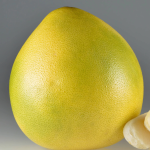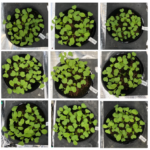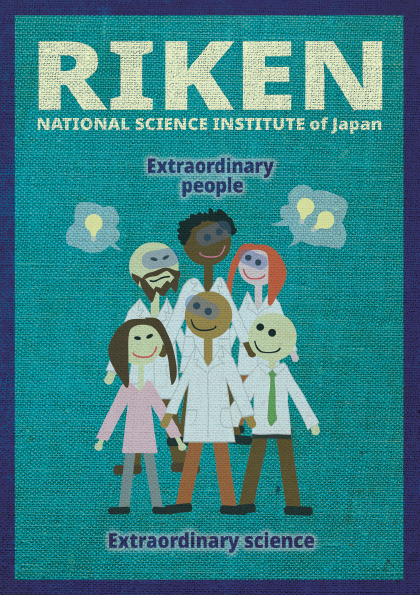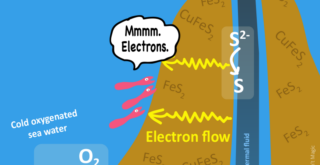Do you know why woodpeckers don’t get headaches? Or why banana peels are slippery? Or whether frogs can levitate? Well don’t worry, because some clever and curious scientists have answered these and hundreds of wacky questions. And instead of being trapped in a dusty library full of journals, these studies have been set free into the wider world thanks to the Ig Nobel Prizes, awarded every year since 1991 for research (and more) that makes you laugh, then think. The creator of the Ig Nobel, Marc Abrahams, was at Nerd Nite Tokyo in September as part of a Japan tour.

Image by Todd Van Hoosear, CC BY-SA 2.0.
Considering the serious research culture in the country, a surprising number of winners have actually come from Japan, including 2018’s “Lessons Learned From Self-Colonoscopy” by doctor Akira Horiuchi. The many illustrious Ig Nobel-winning achievements are the subject of a new exhibition in Tokyo that is running through November 4. Another notable local win: the invention of karaoke by Daisuke Inoue; apparently karaoke increases tolerance of others, thus contributing to world peace!
Many other Ig prizes have been awarded for discoveries in animal behavior or the human body, but research isn’t the only domain that can win you an Ig. For example, the 2009 mathematics prize recognized the stunning achievement in Zimbabwean inflation, while that same year’s public health prize was given for the invention of a bra that can double as a face mask. Marc says that the hilarity of the Ig-winning work usually emerges at a later date from an outsider’s perspective; scientists themselves are often not aware that their studies might seem funny or absurd. Some cautious researchers have even turned down the prize for fear of damaging their reputations. Thankfully, there are plenty of others, like Marc-Antoine Fardin, who don’t take themselves too seriously and have given the world essential investigations like ‘can a cat be both a solid and a liquid?’ ?
—
 Nerd Nite Tokyo is a series of monthly science talks in a bar. More information at tokyo.nerdnite.com.
Nerd Nite Tokyo is a series of monthly science talks in a bar. More information at tokyo.nerdnite.com.
Do you know why woodpeckers don’t get headaches? Or why banana peels are slippery? Or whether frogs can levitate? Well don’t worry, because some clever and curious scientists have answered these and hundreds of wacky questions. And instead of being trapped in a dusty library full of journals, these studies have been set free into the wider world thanks to the Ig Nobel Prizes, awarded every year since 1991 for research (and more) that makes you laugh, then think. The creator of the Ig Nobel, Marc Abrahams, was at Nerd Nite Tokyo in September as part of a Japan tour.

Image by Todd Van Hoosear, CC BY-SA 2.0.
Considering the serious research culture in the country, a surprising number of winners have actually come from Japan, including 2018’s “Lessons Learned From Self-Colonoscopy” by doctor Akira Horiuchi. The many illustrious Ig Nobel-winning achievements are the subject of a new exhibition in Tokyo that is running through November 4. Another notable local win: the invention of karaoke by Daisuke Inoue; apparently karaoke increases tolerance of others, thus contributing to world peace!
Many other Ig prizes have been awarded for discoveries in animal behavior or the human body, but research isn’t the only domain that can win you an Ig. For example, the 2009 mathematics prize recognized the stunning achievement in Zimbabwean inflation, while that same year’s public health prize was given for the invention of a bra that can double as a face mask. Marc says that the hilarity of the Ig-winning work usually emerges at a later date from an outsider’s perspective; scientists themselves are often not aware that their studies might seem funny or absurd. Some cautious researchers have even turned down the prize for fear of damaging their reputations. Thankfully, there are plenty of others, like Marc-Antoine Fardin, who don’t take themselves too seriously and have given the world essential investigations like ‘can a cat be both a solid and a liquid?’ ?
—
 Nerd Nite Tokyo is a series of monthly science talks in a bar. More information at tokyo.nerdnite.com.
Nerd Nite Tokyo is a series of monthly science talks in a bar. More information at tokyo.nerdnite.com.
Ig Nobel Awards from 2017. French researcher Marc-Antoine Fardin won the Ig Nobel in Physics after using mathematical formulas to work out whether cats are liquid or solid.










